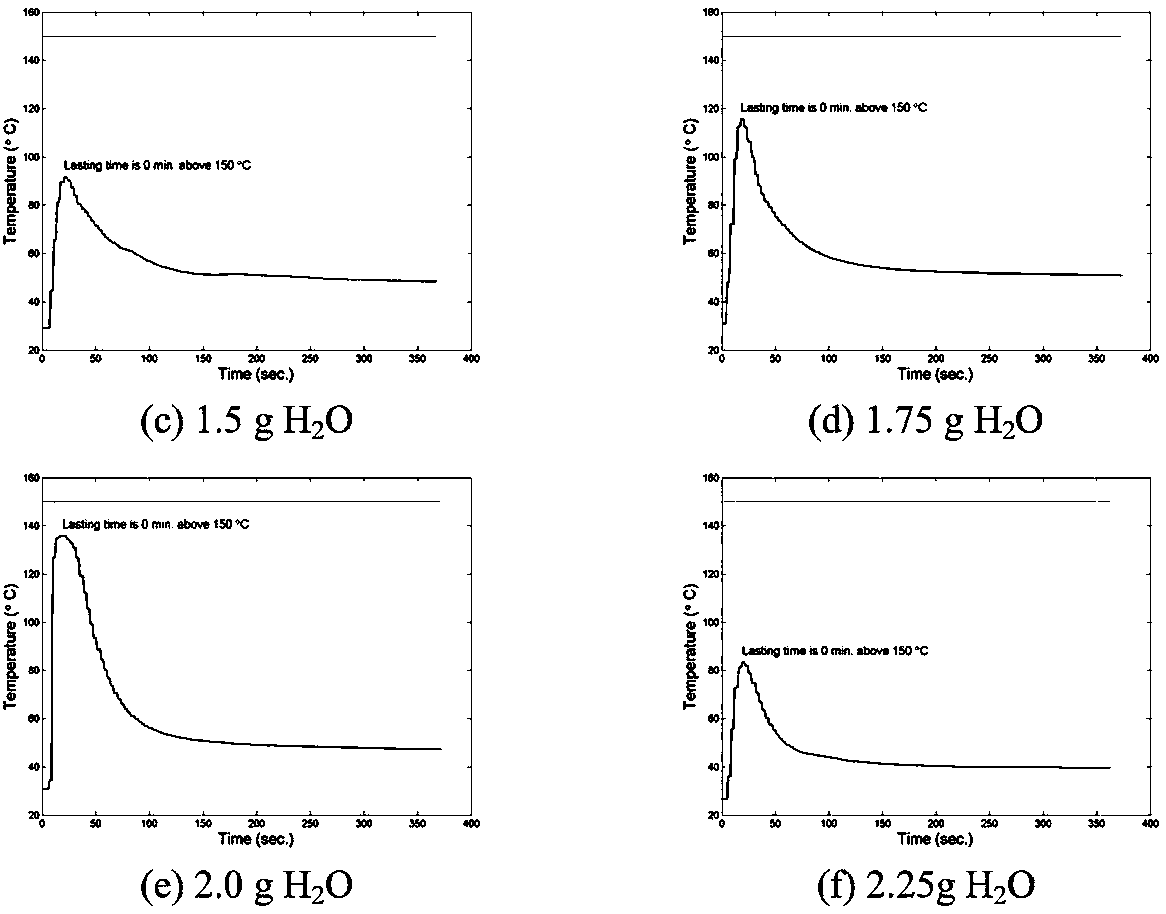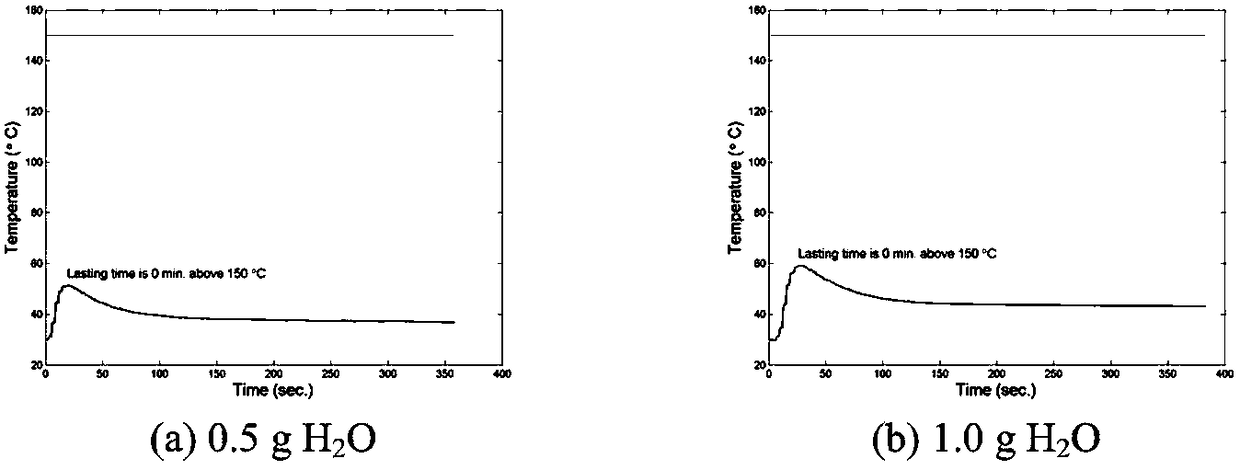Application of heat source composition for water-excited non-combustion tobacco products
A technology for tobacco products and compositions, applied in the directions of application, tobacco, smoker's products, etc., can solve the problems of less technical reports and short development time, etc.
- Summary
- Abstract
- Description
- Claims
- Application Information
AI Technical Summary
Problems solved by technology
Method used
Image
Examples
Embodiment 1
[0074] Example 1 Incentive Mechanism Test of Heat Source Response
[0075] 1. Selection of chemical self-heating reaction
[0076] The invention relates to a non-combustion cigarette belonging to a heating non-combustion cigarette, which uses a built-in heating source to heat shredded tobacco to generate smoke for smokers to smoke. The heating source is a copper tube placed in the shredded tobacco of the cigarette product, and the substances that can react spontaneously after mixing are placed in the copper tube. When these substances in the copper tube are not mixed, the exothermic reaction cannot proceed; when the mixed substances in the tube are in contact, the reaction will proceed spontaneously in a short time, and at the same time, enough heat will be released, and the heat released by the reaction will pass through the copper tube. The transmission can heat and roast the shredded tobacco, so that the active ingredients in the shredded tobacco can be volatilized, so as ...
Embodiment 2
[0094] The design experiment of embodiment 2 composition formula
[0095] 1. Orthogonal test verification
[0096] The present invention determines that the consumption of the main components aluminum powder and / or iron powder and / or magnesium powder, potassium permanganate, manganese dioxide, tartaric acid and potassium hydrogen tartrate, anhydrous magnesium sulfate, activated carbon participating in the reaction is the main influencing factor. EXAMPLES Five levels are selected for each factor, and the six-factor five-level L25 (56) orthogonal test design scheme is used for experimental verification. To avoid redundant description, this embodiment provides the orthogonal test data of aluminum powder as an example for illustration.
[0097] According to the orthogonal test design, determine reasonable influencing factors and level dosage, because aluminum powder or magnesium powder, potassium permanganate and acidic substances are necessary substances for the reaction, while ...
Embodiment 3
[0177] Example 3 Three kinds of mixed metal application test
[0178] Based on the above test results, this embodiment further compares the maximum reaction temperature, exothermic time and heating time of aluminum, iron and magnesium as metal reactants respectively. The maximum reaction temperature, exothermic time and heating time of the three reactions are as follows: Figures 45 to 47 shown.
[0179] analyze Figure 45 to Figure 47 In the situation shown, in order to achieve rapid temperature rise, magnesium is the most suitable for single application, and the selection range is 0.75 to 1.5 times of magnesium; at the same time, from the trend, choosing 0.5 times of magnesium may also achieve the effect of rapid temperature rise. And in conjunction with the results of Table 11, the reaction rate of the lower layer that initially contacts water is the highest (88.17%, higher than 75.52% of the middle layer and 77.22% of the lower layer), and far higher than that of the oth...
PUM
 Login to View More
Login to View More Abstract
Description
Claims
Application Information
 Login to View More
Login to View More - R&D
- Intellectual Property
- Life Sciences
- Materials
- Tech Scout
- Unparalleled Data Quality
- Higher Quality Content
- 60% Fewer Hallucinations
Browse by: Latest US Patents, China's latest patents, Technical Efficacy Thesaurus, Application Domain, Technology Topic, Popular Technical Reports.
© 2025 PatSnap. All rights reserved.Legal|Privacy policy|Modern Slavery Act Transparency Statement|Sitemap|About US| Contact US: help@patsnap.com



